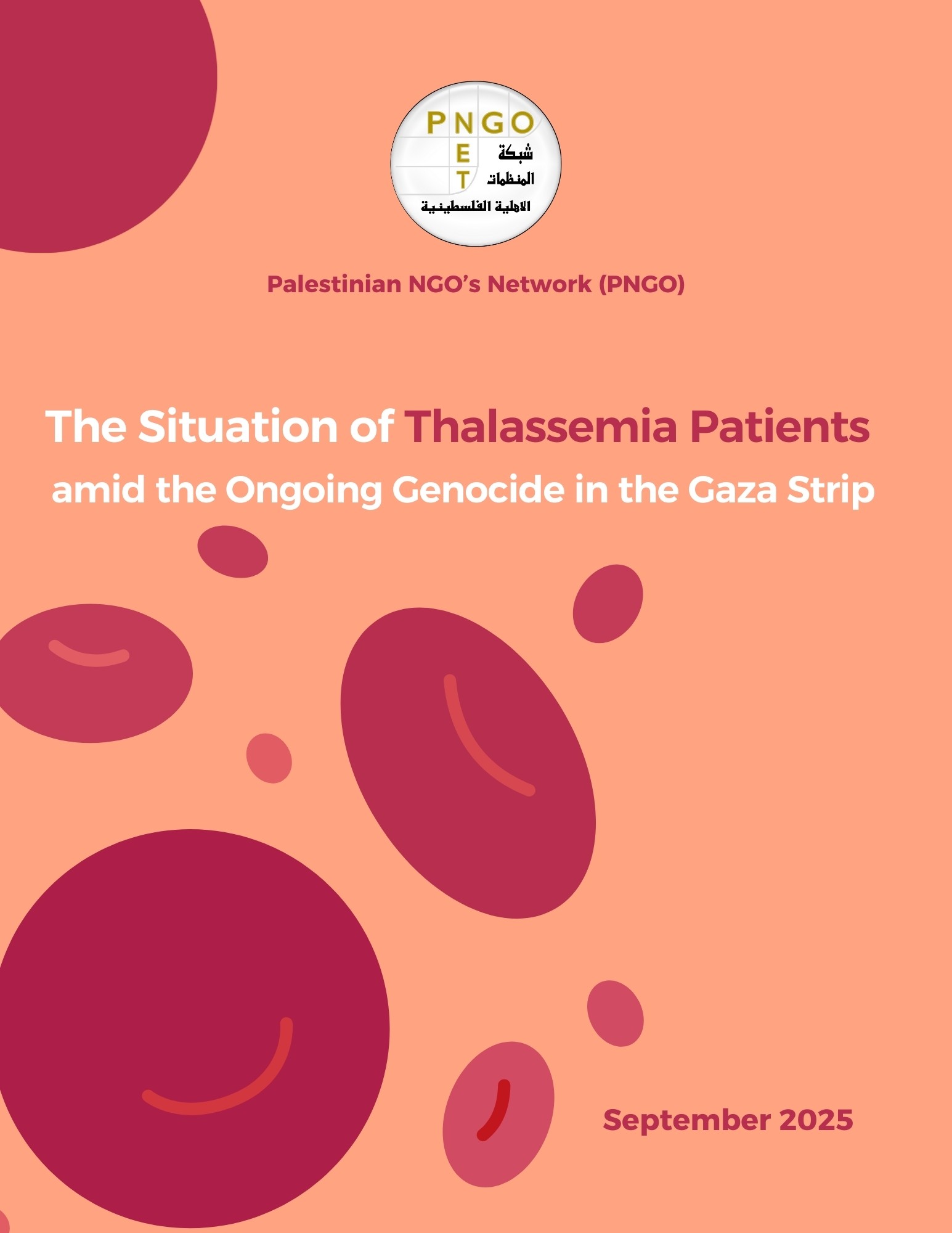The Palestinian NGOs Network has issued a new paper titled: “The Situation of Thalassemia Patients under the War of Extermination on the Gaza Strip”, highlighting the current situation of thalassemia patients in Gaza, the scale of the humanitarian crisis threatening their survival, and outlining urgent response priorities and practical recommendations to ensure saving their lives and safeguarding their right to treatment and a dignified life, in line with the principles of international humanitarian law and international human rights conventions.
The paper shows that the majority of thalassemia patients in Gaza suffer from the most severe forms of the disease, as data indicates that 73% of them have thalassemia major, a type that requires lifelong regular blood transfusions. Around 35% of patients need more than 24 blood transfusions annually, almost twice a month, further increasing their total dependence on the availability of blood units and supportive medications.
The paper revealed that since the outbreak of the recent war, no fewer than 45 patients have lost their lives, 31 of them due to treatment interruptions and malnutrition, and 14 as a result of direct targeting. It is further estimated that around 244 patients have been unable to access regular treatment or life-saving blood units, reflecting the magnitude of the crisis threatening their very survival.
The paper stressed that ongoing bombardment and the blockade have disrupted blood transfusion units and exhausted chelation medications, depriving patients of the most basic components of treatment. With many hospitals destroyed and more than 80% of health centers shut down, patients have been unable to attend regular transfusion sessions, causing their conditions to deteriorate rapidly and leading to fatal complications such as liver enlargement and heart failure.
The paper called for securing medical care for patients through safe humanitarian corridors that would enable them to reach hospitals, and allowing for urgent medical evacuation of critical cases outside the Gaza Strip.
It also emphasized the need to strengthen the role of NGOs working with thalassemia patients, and to support coordination with them to ensure a more comprehensive and effective response.



